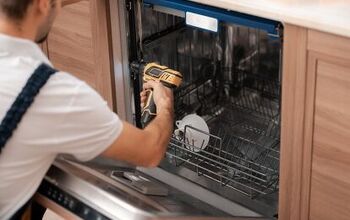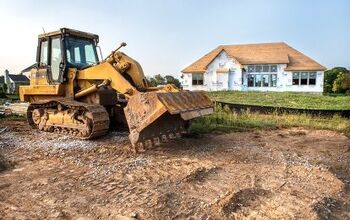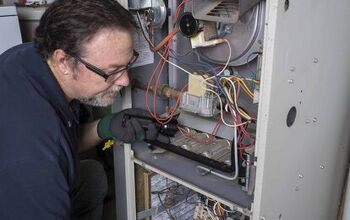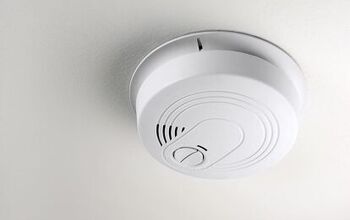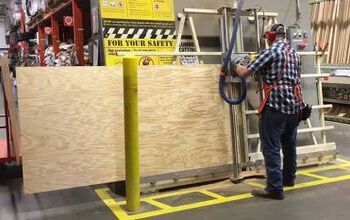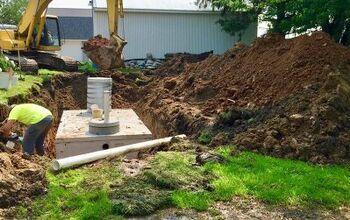How Much Does It Cost to Pour a 24×24 Slab of Concrete?

Concrete slabs are necessary for a variety of different projects. Maybe you need a concrete patio for your summer night parties- or a foundation to build your shed. Perhaps, you have another project in mind.
Regardless of the reason, one thing is for sure: It’s going to cost you. A concrete slab that is 24 X 24 is the average size needed to make a patio. How much would that cost, exactly?
The average cost to pour a 24×24 slab of concrete is $3,456, which includes materials and labor. Homeowners spend an average of $45 per hour on labor, and it costs $15.90 per square foot to pour concrete. Material costs include $4 per cubic foot of concrete, or $900 total before labor costs.
If the cost of a concrete slab is too much, you could always try concrete instead. Not many people know this, but concrete and cement are not the same.
Concrete’s made from cement, plus other granular materials, mortar, and water.
Do You Need Concrete Foundation Installers?
Get free, zero-commitment quotes from pro contractors near you.

Cost Factors of a 24 X 24 Slab of Concrete
Depending on where you search for concrete, the price will differ between $4 to $8 per square foot. This price reflects the cost of labor, as well. For a 24 X 24 concrete slab, the price will vary between $2,500 and $5000. This price does not include the cost of materials, however.
| Low-End Cost | Average Cost | High-End Cost |
| $2,500.00 | $3,456.00 | $5,000.00 |
The price of a 24 X 24 concrete slab differs depending on several different factors. Other factors that you need to take into account are:
- Labor costs
- Price of materials
- Type of Concrete
As you can see, there are a lot of different elements to take into consideration for the final cost. We will go over each of these elements to help you figure the value of your project.
The Cost of Labor
The average flat-rate cost for labor is around $45 per hour. This price will be different depending on the contractor, or company you hire. If there are any additional fees, these should be discussed before hiring so that you are aware.
Although, sometimes, a contractor will charge a rate per square foot. You can expect to pay between $5.35 and $10.55 per square foot for the installation of concrete. This price reflects the average cost per square foot of a slab that is four inches thick.
If you find that you cannot afford to hire a professional, there is the option of doing it yourself. However, you would need to make sure you have all the materials available. Configuring the price also includes safety equipment.
To figure out how much it would cost you to do it yourself, you need to know the cost of the materials.
The Cost of Materials
The materials cost, on average, around $4 per cubic foot. To figure out the cubic feet in 576 square feet, you need to know the thickness of your slab. Here are the prices of materials for a 24 X 24 slab with a thickness between 2″ and 12″:
| Cost of Concrete Materials For 24 X 24 Slab | ||
| Thickness of Concrete | Cubic Feet | Price without Labor |
| 2″ | 96 ft3 | $384.00 |
| 4″ | 192 ft3 | $768.00 |
| 6″ | 288 ft3 | $1,152.00 |
| 8″ | 384 ft3 | $1,536.00 |
| 10″ | 480 ft3 | $1,920.00 |
| 12″ | 576 ft3 | $2,304.00 |
Although, the most common thickness of concrete is between 4″ and 8″ depending on the job. Rarely ever will you need a foot thick of poured concrete.
Let’s say you need a four-inch-thick slab for your project. You could expect to pay around $900 for your materials, and the necessary equipment. While this is cheaper, it would be a better idea to save up and hire a professional instead.
The contractor, or company, will have the necessary materials available. Besides, having a professional do it always turns out better! Hiring someone takes the hard work away from you and puts it into the hands of someone trained to do this work. Unless, of course, you have your equipment.
The Different Types of Concrete
- Roller-compacted concrete (RCC)
- Ready-mix Concrete
- Stamped Concrete
- Asphalt Concrete
- Conventional Concrete
RCC holds the same components as conventional concrete- it is made from cement, aggregates, and water. However, the mix is driver, allowing compaction with a roller without the risk of cracking.
The cost of roller-compacted concrete is around $90 per cubic yard.
Ready-Mix ConcreteReady-Mix Concrete is mixed at a plant, rather than on the site. It is either then mixed while in transit with a cement truck, or re-mixed upon arrival.
The cost of ready-mix concrete is $119 to $147 per cubic yard. If you order less than ten cubic yards (7.11 yards for a 24 X 24 slab with 4″ depth), then you may be charged an additional $53 per cubic yard.
Stamped ConcreteStamped concrete is a type of concrete that has patterns and textures to it. This particular type of concrete can look like wood, brick, stone, or any other kind of material.
On average, stamped concrete costs between $8 and $12 per square foot. Sometimes, though, it can go as high as $18 square feet.
Asphalt ConcreteAsphalt concrete has two components, asphalt cement, and aggregate. The aggregate makes up about 90%-95% of this concrete. Think of a parking lot or a highway. These are great examples of asphalt concrete.
This concrete can cost you between $7 per square foot, and $13 per square foot.
Conventional ConcreteOf course, we can’t forget about the regular concrete. Standard concrete comes in a variety of ways:
- Pre-mixed
- Mix it yourself onsite (Or a professional can)
- Precast
Although, the most common form used for home projects is the usual mix it yourself products. This costs around $6 per square foot.
Below is a table comparison for what these different types of concrete will cost you for a 24 X 24 slab of concrete.
| The Cost of Different Concretes | |||
| For a 24 X 24 Slab | |||
| Low | Average | High | |
| Roller-Compacted | $590.00 | $640.00 | $812.00 |
| Ready-Mix | $846.00 | $889.00 | $1,015.00 |
| Stamped | $4,608.00 | $6,912.00 | $5,004.00 |
| Asphalt Concrete | $4,032.00 | $5,760.00 | $7,488.00 |
| Conventional Concrete | $576.00 | $3,456.00 | $2,800.00 |
Clarify Your Project Goals
To understand how much your project will cost, you need to clarify your goals.
- What are you using this particular slab for?
- What type of concrete do you want to use?
- Do you want to hire a professional or do it yourself?
- How thick do you want the concrete?
When you decide the thickness, take into account what your slab is used for. Will it be for walking or sitting only? Then a 3-inch thick slab would be perfect. Is it used for heavy equipment or vehicles? Then a 6-inch thick slab will be sufficient.
Additional Tips and Tools You Need for Pouring Concrete
If you decide to save some money and pour your concrete yourself, here are a few tips to guide you along the way:
Getting Your Area Ready
Clear the area of any grass, surfaced tree roots, or large rocks. You could also use a sod cutter to remove the top layer of soil and grass. Be sure to take at least 4 inches of the topsoil away. After that, take care to level out your ground.
Prepare Your Subbase
Your subbase is what your concrete rests on. Typically road base or granular fill is used as a subbase. Although, an exception to that is if you have adequately stable soil. In that instance, you can use the earth as a subbase. However, you would need a contractor to come in to check your soil to see if it’s stable enough.
You can use either fine grade stone or open grade stone. However, the open grade stone tends to allow water to slip through. Fine grade stone is more expensive.
Your subbase should be 4 to 8 inches thick, depending on your project. You can compact it with either a hand tamper or a plate compactor.
Setting Your Forms
In short, a form is a wooden perimeter. This helps to achieve the best finish for your project. You pour the concrete inside of your form, and in turn, the structure holds your concrete there until it dries.
In the case of a 24 X 24 slab, your form with be a square. You will want to ensure the corners of this mold forms a 90-degree angle. To provide you have set the forms right, measure from corner to corner. The measurements should match.
Add Wire Mesh or Rebar on the Inside of Your Form
Reinforcing your concrete with wire mesh or rebar will improve the structural quality of your slab.
The mesh will keep cracks from spreading. On the other hand, the rebar will help to achieve a higher load-bearing surface. You will want to lay your rebar in a grid-like pattern evenly across the inside of your form.
Mixing and Pouring Your Concrete
In the case that you decided to combine the concrete yourself, here are some tips to help you achieve the best concrete mixture:
- Mix together:
Portland CementSandCoarse gravelThe ration is 1:2:4
- Add water to the mixture. The water will bind the materials together, forming concrete.
You can mix the concrete in a wheelbarrow with a shovel if you do not have a concrete mixer. From there, you can dump the concrete into your form from the wheelbarrow, or shovel it out.
You will then want to take your screening tool and start at the uphill point. The point of screening is to flatten out your concrete. Do this until everything is level and smooth. Get rid of any air bubbles as well as this will affect the finish to your slab.
Forming Traction on Your Concrete Surface
After you have smoothed your concrete, take a push broom and push it across your concrete. This will form grooves, so it is not slippery in the rainy season. You can get creative and make little designs in your concrete.
Although, if you find clumps of aggregate coming off on your broom, you will want to smooth the surface again and wait. This could be an indication that it’s too early to broom your concrete.
Do You Need Concrete Foundation Installers?
Get free, zero-commitment quotes from pro contractors near you.

Related Questions
Is Cement Stronger Than Concrete?
No, cement is not more durable than concrete. Cement, however, is a component of concrete.Conventional concrete is made of cement, aggregate, and water. Concrete can also be compacted by a roller, whereas cement is not strong enough to withstand the weight.
Related Guides

Heather is a passionate writer who loves anything DIY. Growing up, she learned everything from home repairs to design, and wants to share her tips with you. When she's not writing, she's usually hiking or searching for her next DIY project.
More by Heather Robbins



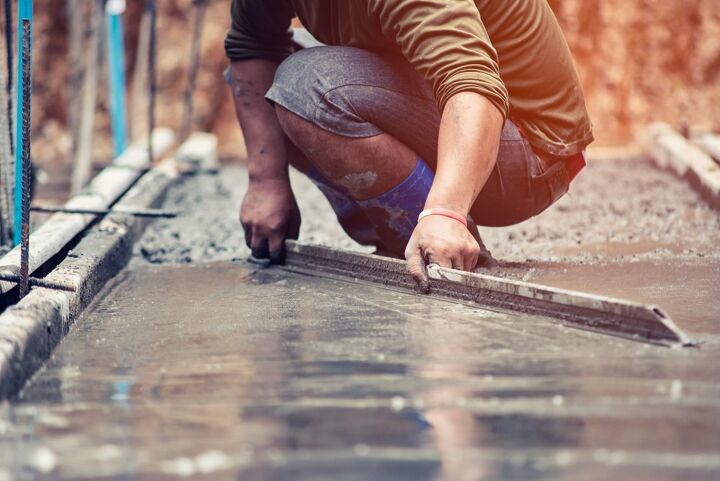
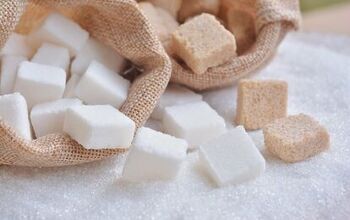





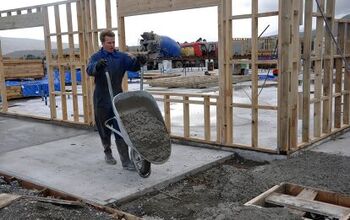
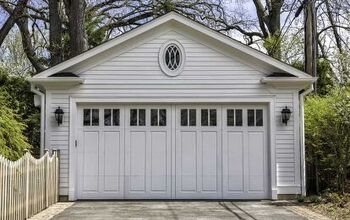
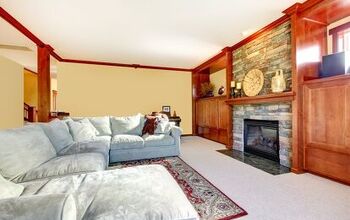

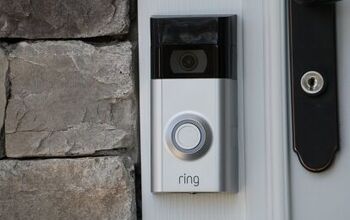
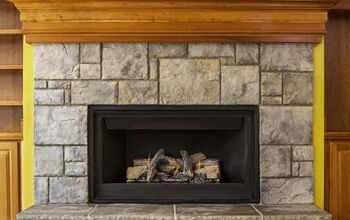
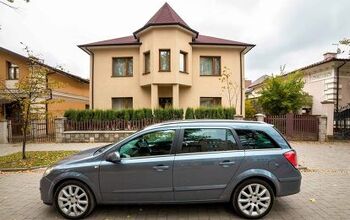
![10 Most Dangerous Neighborhoods in Baltimore [Updated]](https://cdn-fastly.upgradedhome.com/media/2023/07/31/9075655/10-most-dangerous-neighborhoods-in-baltimore-updated.jpg?size=350x220)
